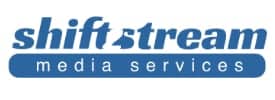- About
- Members
- Sponsors
- Subcommittees
- Technical Documents
- News
- Events
- Spotlight ATSC 3.0
- Contact Us
- Member Login
- Member Meetings
- Advanced Search
Search Site
Member Links
- About
- Members
- Sponsors
- Subcommittees
- Technical Documents
- News
- Events
- Spotlight ATSC 3.0
- Contact Us
- Member Login
- Member Meetings
- Advanced Search
Term
event
Posted on April 1, 2015 in
A collection of associated program elements that have a common timeline for a defined period. An event is equivalent to the common industry usage of “television program.” An event may also be an analog “television program.”
event
Posted on April 1, 2015 in
A collection of elementary streams with a common time base, an associated start time, and an associated end time.
essence
Posted on April 1, 2015 in
In its simplest form, essence = content – metadata. In this context, (video) essence is the image itself without any of the transport padding (H and V intervals, ancillary data, etc).
epoch
Posted on April 1, 2015 in
An instant in time that is arbitrarily selected as a point of reference.
environment resource
Posted on April 1, 2015 in
A physical or logical component of an application environment; e.g., a region of the graphics frame buffer, an input device, a shared semaphore, a memory pool, etc.
entry point
Posted on April 1, 2015 in
Refers to a point in a coded bit stream after which a decoder can become properly initialized and commence syntactically correct decoding. The first transmitted picture after an entry point is either an I-picture or a P-picture. If the first transmitted picture is not an I-picture, the decoder may produce one or more pictures during […]
entropy coding
Posted on April 1, 2015 in
Variable length lossless coding of the digital representation of a signal to reduce redundancy.
entitlement management message (EMM)
Posted on April 1, 2015 in
Entitlement management messages are private conditional access information which specify the authorization level or the services of specific decoders. They may be addressed to single decoders or groups of decoders.
entitlement control message (ECM)
Posted on April 1, 2015 in
Entitlement control messages are private conditional access information which specify control words and possibly other stream-specific, scrambling, and/or control parameters.
end-user
Posted on April 1, 2015 in
The individual operating or interacting with a receiver.
News Categories
News Archives
Subscribe
Subscribe to The Standard, our monthly newsletter. Learn More
Join ATSC
ATSC is a membership organization with both voting and observer categories. Voting members include corporations, nonprofit organizations, and government entities, and they participate actively in the work of ATSC. Observers are individuals or entities not eligible to be a voting member.
Subscribe to our Newsletter
Subscribe to The Standard, our monthly newsletter, to stay up-to-date with ATSC news and events around the world.
Site Links
Contact Us
Advanced Television Systems Committee, Inc.
1300 I Street NW, Suite 400E
Washington, DC 20005
Do you have questions about ATSC?
About ATSC
The Advanced Television Systems Committee, Inc., is an international, non-profit organization developing voluntary standards and recommended practices for digital terrestrial broadcasting. ATSC member organizations represent the broadcast, broadcast equipment, motion picture, consumer electronics, computer, cable, satellite, and semiconductor industries. ATSC also develops digital terrestrial broadcasting implementation strategies and supports educational activities on ATSC standards.
© 2024 ATSC








































